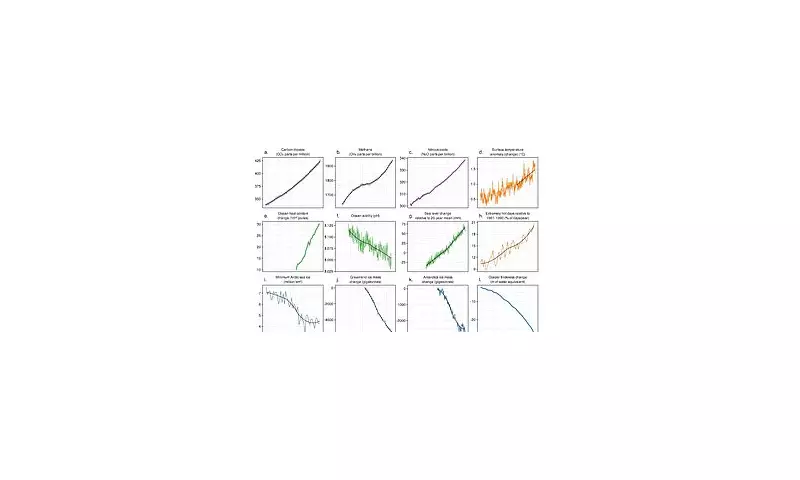
A startling new scientific report has delivered what experts are calling a 'final warning' on the climate emergency, revealing that Earth's vital signs are deteriorating at an alarming and unprecedented pace.
The Alarming State of Our Planet
According to the comprehensive analysis published in the journal BioScience, twenty of the thirty-five planetary vital signs used to track climate change have now reached record extremes. The data paints a disturbing picture of a planet in critical condition, with multiple systems showing signs of severe stress.
Record-Breaking Climate Indicators
The report highlights several particularly concerning developments:
- Global sea surface temperatures have shattered all previous records
- Antarctic sea ice has reached its lowest extent ever recorded
- Greenland's ice sheet is experiencing unprecedented melting
- Global fossil fuel subsidies have surged to nearly £1.3 trillion in 2022
Human Suffering and Climate Impacts
The human cost of the climate crisis is becoming increasingly impossible to ignore. The past year has witnessed a dramatic rise in climate-related disasters, including devastating floods, catastrophic wildfires, and deadly heatwaves that have claimed thousands of lives worldwide.
Scientists note that 2023 has already seen 38 days with global average temperatures more than 1.5°C above pre-industrial levels - a threshold that world leaders pledged to avoid under the Paris Agreement.
A Call for Immediate Action
Lead author Dr Christopher Wolf from Oregon State University didn't mince words: "Life on planet Earth is under siege. We're now seeing the consequences of our inaction unfolding in real-time."
The report calls for urgent, transformative action across all sectors of society, emphasising that incremental changes are no longer sufficient to address the scale of the crisis.
The Path Forward
Researchers propose several critical measures that must be implemented immediately:
- Phasing out fossil fuel subsidies and transitioning to renewable energy
- Reducing methane and other greenhouse gas emissions
- Protecting and restoring natural carbon sinks like forests and wetlands
- Supporting climate-vulnerable communities in adaptation efforts
The scientific consensus is clear: without immediate, coordinated global action, we risk crossing irreversible tipping points that could fundamentally alter life on Earth as we know it.





